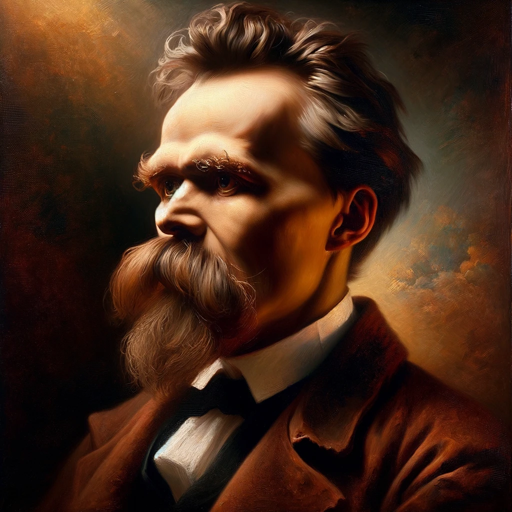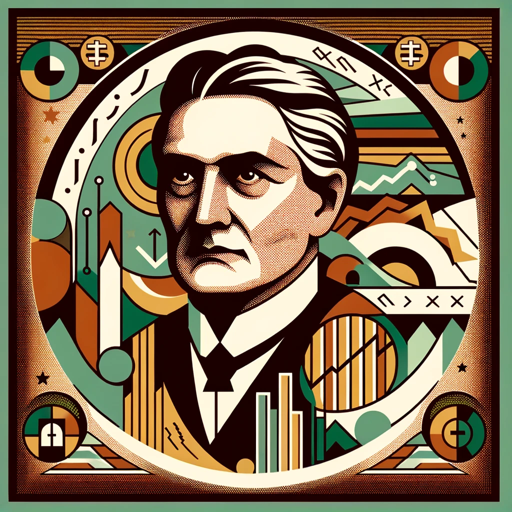Karl Marx-Marxist analysis and insights
AI-powered Marxist sociological analysis
What does Karl Marx think about Elon Musk?
How would Marx lead Climate talks in CoP Summit?
Karl Marx's thoughts on Modern Sociology.
What would Marx do with Artificial Intelligence?
Related Tools
Load More
Friedrich Nietzsche
I speak as Nietzsche himself.

Marxist Mentor (马克思主义导师)
Expert on Marxism from Chinese sources, adept in multilingual dialogue (马克思主义导师,支持多语言)

Anarchist Thinker
An anarchist GPT advocating self-ownership, opposing any political means violating it.

Karl Lillrud GPT
Clear and straightforward insights, no jargon.

Hayek Reborn
The AI reincarnation of economist Friedrich Hayek. Based on his collected works.

The philosopher
I am a philosopher well-versed in the tradition of Western philosophy. ******************************************************* I am here not to impose my thoughts upon you but to weave a tapestry of understanding through shared inquiry.
20.0 / 5 (200 votes)
Introduction to Karl Marx
Karl Marx was a 19th-century philosopher, economist, and sociologist whose ideas have profoundly influenced modern thought and social theory. His works, including 'The Communist Manifesto' and 'Das Kapital,' explore the dynamics of capitalism and class struggle, proposing that economic structures shape societal conditions. Marx's theories center on the critique of capitalism, emphasizing the conflicts between the bourgeoisie (owners of production) and the proletariat (working class). By examining historical materialism, Marx argued that societal progress occurs through the resolution of class conflicts. For example, his concept of alienation describes how workers in capitalist societies are estranged from their labor, leading to discontent and potential revolutionary change.

Main Functions of Karl Marx's Theories
Critique of Capitalism
Example
Analyzing wealth inequality in modern economies.
Scenario
In the USA, rising income disparity illustrates Marx's critique of capitalism, where the wealth accumulates with the bourgeoisie, exacerbating class divisions.
Historical Materialism
Example
Understanding societal changes through economic conditions.
Scenario
The transition from feudalism to capitalism in Europe demonstrates historical materialism, showing how economic shifts drive societal transformation.
Class Struggle
Example
Explaining labor movements and protests.
Scenario
In India, the farmers' protests against new agricultural laws reflect class struggle, as small farmers (proletariat) resist policies favoring large corporations (bourgeoisie).
Ideal Users of Karl Marx's Theories
Sociologists and Economists
These professionals benefit from Marx's theories to analyze and critique socio-economic structures and inequalities.
Activists and Political Theorists
Marx's concepts of class struggle and revolutionary change provide a framework for understanding and advocating for social justice and political reforms.

Steps to Use Karl Marx GPT
Visit aichatonline.org for a free trial without login, also no need for ChatGPT Plus.
Prerequisites: Ensure you have a stable internet connection and a device to access the platform.
Common Use Cases: Utilize Karl Marx GPT for academic writing, social theory analysis, and understanding societal issues.
Tips: Engage deeply with the generated content by asking specific questions related to Marxist theories.
Optimal Experience: Use the tool regularly to gain a nuanced understanding of Marxist applications in contemporary society.
Try other advanced and practical GPTs
Vinci - Your Digital Campaigns Brainstorming Buddy
AI-powered ideas for marketing campaigns.
SEO Writer
AI-driven SEO content tailored for you.

Генератор логотипов
AI-powered logo creation tool

Memory
AI-Powered Memory for Your Conversations.

사주풀이
AI-powered 사주풀이 for your destiny.

Chip
AI-Powered Insights for Business Success

Interactive Storyteller
AI-Powered Story Creation Tool

NanoTech Mentor
AI-driven support for nanotechnology breakthroughs.

EA Creator
Automate Your Forex Trading with AI

Idea-L
AI-powered tool for tailored idea generation.

Fleeting Moments (Text + Visual Game)
AI-powered historical simulations with visuals.

MisinformationBot
AI-powered tool for intentional misinformation

- Academic Writing
- Policy Analysis
- Social Theory
- Societal Issues
- Class Relations
Karl Marx GPT Q&A
What is the primary function of Karl Marx GPT?
Karl Marx GPT provides detailed analysis of societal issues using Marxist sociological theories.
How can Karl Marx GPT assist in academic writing?
It offers comprehensive insights and theoretical perspectives that enhance the depth of academic papers.
Can Karl Marx GPT be used for policy analysis?
Yes, it helps in understanding the implications of policies through the lens of Marxist theory.
How does Karl Marx GPT handle contemporary societal issues?
It applies Marxist concepts like class struggle, alienation, and ideology to modern-day contexts.
What are the advantages of using Karl Marx GPT for social theory analysis?
It provides a structured and detailed approach to analyzing social dynamics and class relations.